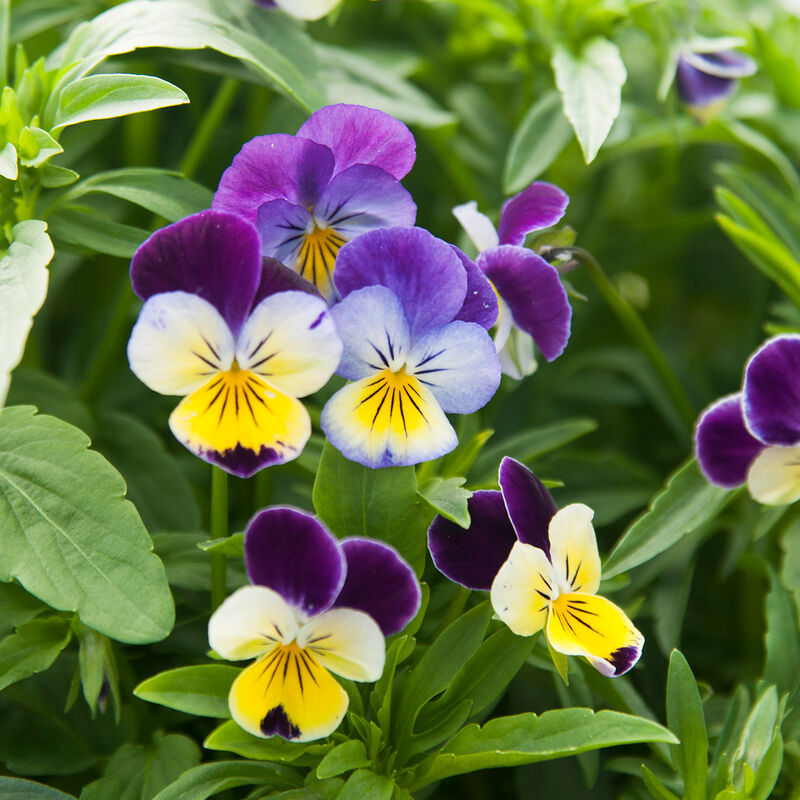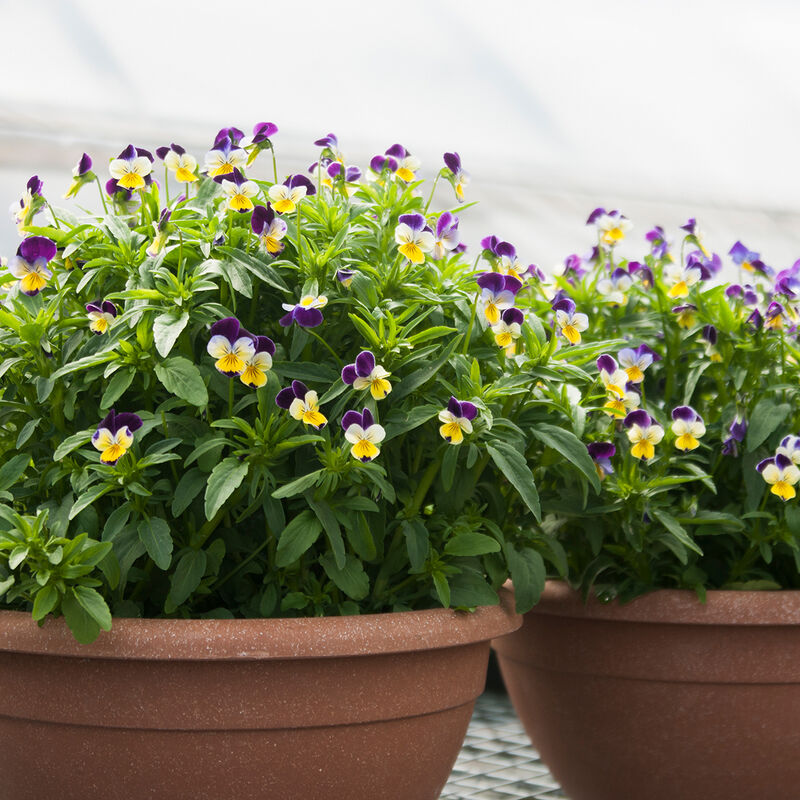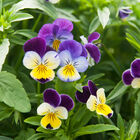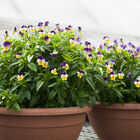Helen Mount Viola Seed
Helen Mount Viola Seed
The true Johnny jump-up.
1–2" tricolor flowers in purple, yellow, and white. May reseed. Also known as pansy, heart's ease, Johnny jump-up, and European field pansy. Perennial in Zones 4–9.Specs:
DAYS TO GERMINATION:
4-7 days at 62-68°F (17-20°C)SOWING:
Transplant - Sow 7-9 weeks before planting out. Will tolerate a light frost. Sow 8-9 weeks ahead if blooming in cell packs is desired. Cover seeds lightly. Bottom water or mist to avoid displacing seeds. Transplant to cell packs or larger containers when the first true leaves appear. Harden off and transplant outside. Violas will tolerate a light frost. In climates with mild winters or in tunnels, violas may be sown late summer to fall. Direct seeding is not recommend.LIGHT PREFERENCE:
Sun/Part Shade.PLANT HEIGHT:
Varies.PLANT SPACING:
6-9".HARDINESS ZONES:
Varies.HARVEST:
Edible flowers - fully open. Cut flowers - stems are long and at least one bloom per stem is open. Deadheading encourages continuous blooms.SOIL REQUIREMENTS:
Rich, well-drained soil.USES:
Excellent in containers and garden beds. Edible flowers and cut flowers.Select varieties (see variety descriptions) are suitable for cut flowers under the following conditions; grown from a very early spring planting or an overwintered planting so that well-established plants are coming into flower during the long days and warm temperature of spring and early summer. Long days and warm temperature cause the elongation of stems and profuse flowering that is required for quality cut flower viola.
For compact bedding plants, grow seedlings and young plants at cool temperatures and high light levels to minimize stretching.
SCIENTIFIC NAME:
Viola spp.ALTERNATE NAMES:
Johnny jump-up, European field pansy, heart's ease, hybrid violetJohnny's is committed to your success, every step of the way.
We want you, our customer, to be 100% satisfied with all of our seeds, tools, and supplies.
If anything you purchase from us proves unsatisfactory, we will either replace the item or refund the purchase price.











